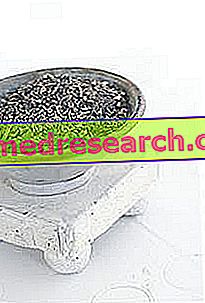
What is Brinavess?
Brinavess is a concentrate for the preparation of a solution for infusion (drip into a vein). The active ingredient is vernakalant hydrochloride.
What is Brinavess used for?
Brinavess is used to quickly restore normal heart rhythm in adult patients (18 years of age and older) with newly onset atrial fibrillation. Atrial fibrillation occurs when the atria (the upper chambers of the heart) contract with a rapid and irregular rhythm, producing an abnormal heart rhythm. Brinavess should be used if fibrillation has occurred in the last seven days or, in patients who have recently had a cardiac operation, in the last three days.
The medicine can only be obtained with a prescription.
How is Brinavess used?
Brinavess should be administered by qualified medical personnel within facilities that allow appropriate monitoring of the patient's cardiac function.
Patients undergoing cardiac fibrillation should be treated with 3 mg per kg of body weight administered by intravenous infusion over 10 minutes. If after 15 minutes from the first infusion the heart has not returned to a normal rhythm, proceed with a second administration of 2 mg / kg. The dose of Brinavess that can be administered within 24 hours cannot exceed 5 mg / kg.
How does Brinavess work?
The active ingredient contained in Brinavess, the vernakalant, is an anti-arrhythmic drug, a drug that restores the normal heart rhythm by blocking the channels used by the potassium and sodium particles to enter and exit the cells of the muscle tissue of the atrium. By doing so, vernakalant can inhibit the normal electrical activity that can induce atrial fibrillation. The vernakalant acts mainly inside the atria more than in the ventricles (the lower chambers of the heart).
How has Brinavess been studied?
The effects of Brinavess were first tested in experimental models before being studied in humans.
In two main studies involving 596 adults with atrial fibrillation, Brinavess was compared with a placebo (a dummy treatment). A third main study compared Brinavess with a placebo in 161 adults with atrial fibrillation after heart surgery. The main efficacy parameter was the percentage of patients with normalization of cardiac rhythm.
What benefit has Brinavess shown during the studies?
Brinavess was more effective than placebo in adults with recent onset of atrial fibrillation. In the first two studies, among patients with recent onset of atrial fibrillation, the cardiac rhythm normalized in 51% of patients treated with Brinavess (118 of 231) compared to 4% (6 of 159) of those treated with placebo. In the third study, cardiac rhythm returned to normal in 47% of patients treated with Brinavess, compared with 14% of patients treated with placebo.
What are the risks associated with Brinavess?
The most common side effects with Brinavess (seen in more than 1 patient in 10) are dysgeusia (taste disturbances) and sneeze. For the full list of all side effects reported with Brinavess, see the Package Leaflet.
Brinavess should not be used in patients who may be hypersensitive (allergic) to vernakalant hydrochloride or to any of the other ingredients. It also cannot be used in patients with severe aortic stenosis (narrowing of the aorta), low systolic pressure (blood pressure measured during the contraction of the heart), advanced heart failure (a condition in which the heart cannot pump enough blood into whole body), some types of cardioelectric activity alteration or very slow heart rate. It cannot be used even for patients who have undergone intravenous infusions of class I and III anti-arrhythmic drugs for less than 4 hours or who have had acute coronary syndrome for less than 30 days (designation of a series of cardiac problems including unstable angina and heart attack) .
Why has Brinavess been approved?
The CHMP considered that the benefits outweigh the risks and therefore recommended that it be given marketing authorization.
More information on Brinavess
The day On 1 September 2010, the European Commission issued a marketing authorization for Brinavess, valid throughout the European Union, to Merck Sharp & Dohme Limited. The marketing authorization is valid for five years, after which it can be renewed.
The full Brinavess EPAR can be consulted on the Agency's website.
For more information on Brinavess therapy, read the package leaflet (also part of the EPAR) or contact your doctor or pharmacist.
Last update of this summary: 07-2010.



